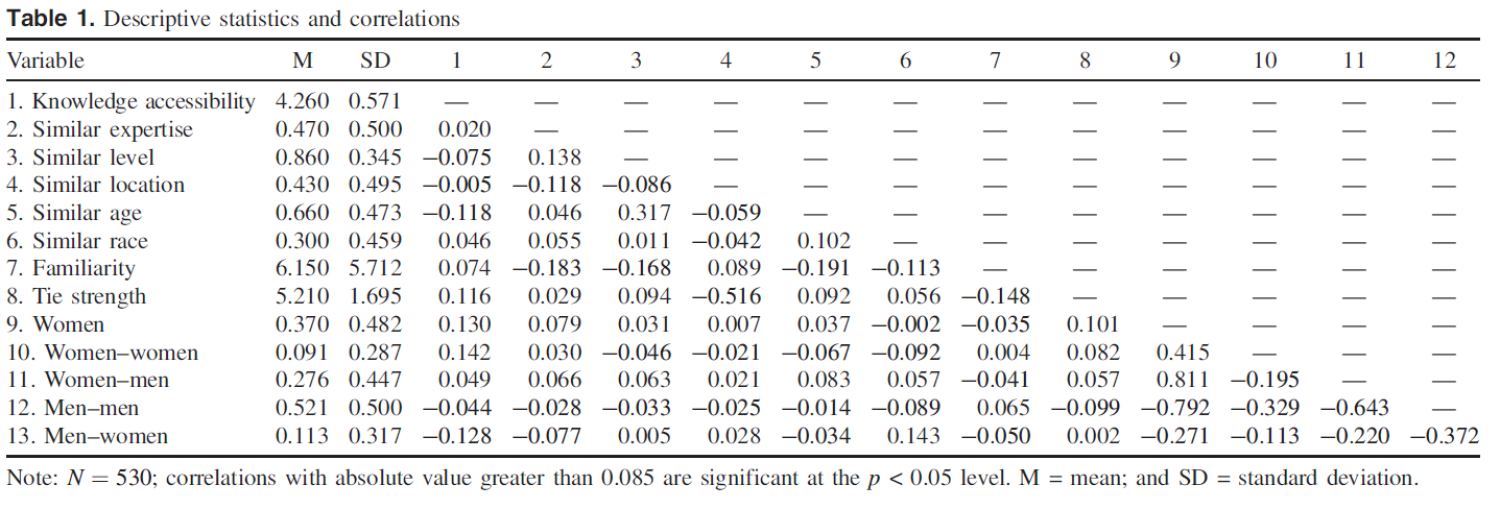Gendered Knowledge Accessibility: Evaluating the Role of Gender in Knowledge Seeking among Engineers in the US

Women are heavily underrepresented in engineering companies. Gender issues arise in daily interactions where employees may not seek knowledge from others when they need it, even if they know who possesses the knowledge, because they may find the knowledge holder difficult to access. In this research, drawing upon social role theory, it is proposed that knowledge accessibility varies across four different types of gender groups (women seeking knowledge from women, women seeking knowledge from men, men seeking knowledge from men, and men seeking knowledge from women). The hypotheses were tested with data collected from an engineering organization. Based on 530 knowledge-seeking interactions provided from 312 engineers, it is found that, in general, women perceived higher levels of knowledge accessibility than men. Knowledge accessibility represents the time and effort that individuals spend in the process of knowledge seeking. Moreover, the highest perceived accessibility was when women sought knowledge from other women; in contrast, the lowest perceived accessibility was when men sought knowledge from women. The theoretical and managerial implications, especially career-related implications for female professionals in a male-dominated industry, are discussed.
Poleacovschi, C., Javernick-Will, A., Wang, S., & Tong, T. (2021). Gendered knowledge accessibility: Evaluating the role of gender in knowledge seeking among engineers in the US. Journal of Management in Engineering, 37(1), 04020094.
Categories: Journal Articles

